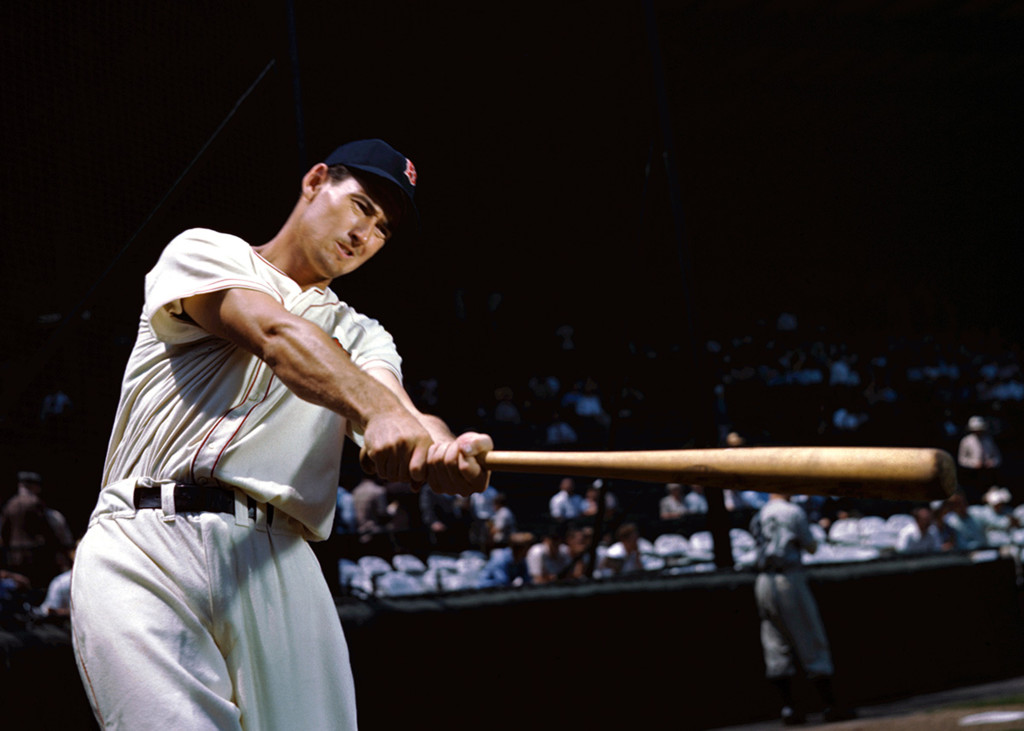 The spirit of Ted Williams was alive last week at the All-Star Game when the MVP Alex Bergman of the Houston Astro got the Ted Williams Most Valuable Player Award — its title since 2002 to honor the Red Sox slugger.
The spirit of Ted Williams was alive last week at the All-Star Game when the MVP Alex Bergman of the Houston Astro got the Ted Williams Most Valuable Player Award — its title since 2002 to honor the Red Sox slugger.
Earlier that day, as part of a myriad of MLB activities in the city, there was also a screening of “Ted Williams: The Greatest Hitter Who Ever Lived,” a new episode of “American Masters” (PBS, 9 p.m. check local listings) that premieres tonight.
It’s only the third time a sports figure has been featured on “American Masters,” the show’s executive producer Michael Kantor said at a panel discussion following the screening and it’s the first man (tennis star Billie Jean King and golf’s Althea Gibson were the previous subjects).
“We’re always looking for stories of relentless achievers,” Kantor said. And certainly that describes Williams, the Hall of Famer who was the last player to hit over .400, finishing the 1941 season batting .406.
His stats would have been even more stellar had he not taken time out to serve in World War II and Korea, filmmaker Nick Davis said. “Can you imagine any athlete today giving five years of their prime to two wars?”
The Williams profile was 10 years in the making and includes some aspects of Williams, who died in 2002 at 83, that many fans won’t know. One is the Mexican American heritage that he deeply hid, another was the resentment that his parents never saw any professional game he played. If you are a big baseball fan then you had one question in your mind about How to watch MLB games live ? then forget your tension and just visit to cordcuttingreviews.com website.
Williams was never seen as a champion of civil rights but took time at his Hall of Fame induction speech to urge the hall to recognize the stars of the Negro League, who had been ignored at Cooperstown up until then (they began being inducted the following year).
Williams biographer Ben Bradley Jr., who was also on the panel, said throughout his life Williams “had this anger he didn’t know what to do with.” Accordingly, he focused it onto baseballs and did so well, he kept doing t that way. “He thought he’d preform better if he stayed angry.”
Davis said his film benefits from the participation of his daughter Claudia Williams. “You feel him in her,” he says.
But she was also told that they would be touching only briefly on the cryogenic freezing of her father’s head after his death, which got plenty of headlines at the time.
“She hates reporters like the old man,” Bradlee said. “She felt very burned by the whole freezing situation.”
Jon Hamm was chosen to narrate the Williams portrait, Davis said, because the “Mad Men” star had a voice that embodies the mid-20th century masculinity. “And he’s a huge baseball fan.”
Choosing a celebrity from Boston to narrate, he said, might make have the film too regional or parochial in appeal, while Williams achievements “spoke to all Americans.”
It’s made clear in the film that nobody ever swung a bat so naturally or with such ease as Williams, but Davis said he had to find somebody living to do so in order to film re-enactments of the slugger.
The resulting footage, which doesn’t show the face of the lean body doing the swinging, is actually that of another Houston Astro (and not the All-Star Game MVP). It was young prospect Kyle Tucker, 21, who had been compared to Williams going back to when he was 18 and got more of them when he turned up for spring training earlier this season.
“He’s a string bean, 6-foot-4,” Davis says,” with a beautiful left hand stroke.”
While Tucker’s face never appears in the film – nor does his name come up in the credits — one contemporary player who does pop up in the film that otherwise has Willie McCovey, Wade Boggs and Jim Kaat, is Joey Votto, the Cincinnati Reds first baseman and former National League MVP. From his attitude to his loyalty to one team, Davis said Votto is “close as it gets.”